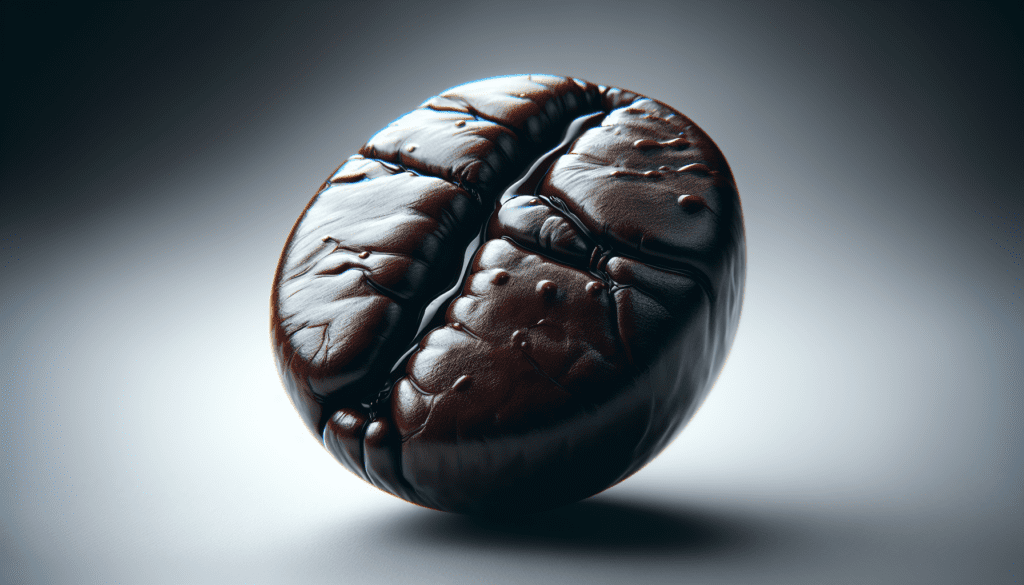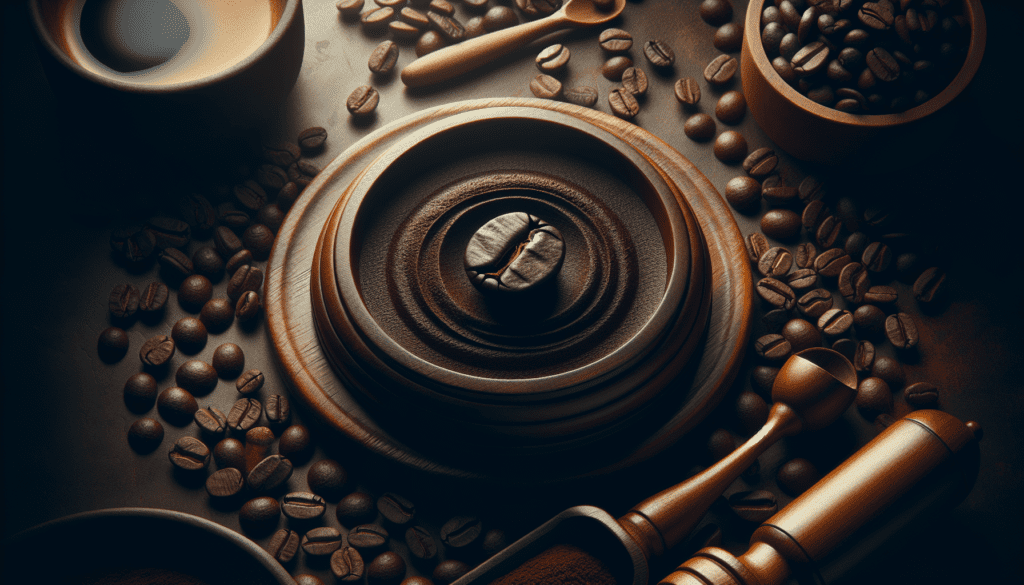Coffee beans, the heart and soul of the caffeinated world, come in various forms and flavors. From the nuances of the best coffee beans for espresso to the concept of chocolate-covered coffee beans, the coffee journey is delightful. Whether you’re a coffee enthusiast or a newcomer seeking guidance on grinding beans to perfection, understanding their storage and shelf life is crucial. From the lush fields of Colombia to the exotic Kona coffee beans of Hawaii, the origins of these beans are diverse. In this article, we’ll explore everything from freezing coffee beans to the gourmet world of flavored coffee beans, ensuring that you get the most from your beloved coffee beans. Plus, we’ll uncover how long coffee beans are good for, satisfying your curiosity and ensuring that each cup you brew is as fresh and flavorful as possible.
Coffee Bean Shelf Life
The shelf life of coffee beans
When it comes to coffee beans, freshness is key to achieving the best flavor in your brew. Coffee beans, like any other food product, have a limited shelf life. The length of time that coffee beans remain fresh can be influenced by various factors, including their roast level, storage method, and the type of coffee beans you are using.
Factors that affect coffee bean shelf life
Several factors can impact the shelf life of coffee beans. One of the most important factors is the roast level. Lighter roasted beans tend to have a shorter shelf life compared to darker roasted beans. This is because lighter roasts retain more moisture, making them more susceptible to oxidation and degradation.
The storage method also plays a crucial role in determining the shelf life of coffee beans. Exposure to moisture, light, and air can accelerate the deterioration process. Therefore, it is essential to store coffee beans properly to maintain their freshness.
Storing Coffee Beans
Choosing the right storage container
Selecting the appropriate storage container is vital for preserving the freshness of coffee beans. It is recommended to store coffee beans in an airtight container that is opaque, as exposure to light can degrade the quality of the beans. Additionally, choose a container that is not made of porous material, as it can allow moisture and air to penetrate.
Keeping coffee beans away from moisture and light
As mentioned earlier, exposure to moisture and light can significantly impact the shelf life of coffee beans. Therefore, it is crucial to store them in a dry and dark place. Avoid storing coffee beans near the stove or any other heat source, as heat can cause the coffee beans to spoil faster.
Storing coffee beans at room temperature vs. in the refrigerator
It is generally recommended to store coffee beans at room temperature rather than in the refrigerator. The cold and fluctuating temperatures inside a refrigerator can lead to condensation, which can result in moisture accumulation on the coffee beans. This moisture can compromise the beans’ flavor and freshness. However, if you live in a particularly hot and humid climate, storing coffee beans in the refrigerator can help extend their shelf life.
Avoiding storing coffee beans in the freezer
Contrary to popular belief, storing coffee beans in the freezer is not an ideal storage method. Coffee beans are porous and can easily absorb odors from other foods in the freezer, resulting in a loss of flavor and aroma. Additionally, the freezing and thawing process can cause moisture to accumulate on the beans, leading to degradation. It is best to avoid storing coffee beans in the freezer unless you have no other option.

Signs of Spoiled Coffee Beans
Visual signs of spoiled coffee beans
One of the most obvious indications of spoiled coffee beans is the appearance. If the coffee beans have become moldy or have an unusual discoloration, it is a clear sign that they are past their prime. Additionally, if the beans appear oily or have a dull appearance, it could indicate that they have gone stale.
Smell and taste indicators of spoiled coffee beans
The aroma and taste of coffee are essential in determining its freshness. If your coffee beans emit an unpleasant or sour smell, it is likely that they have gone bad. Similarly, if the brewed coffee tastes off or lacks the characteristic flavor profile, it could be an indication of spoiled beans.
Determining Freshness of Coffee Beans
Checking the roast date
To ensure the freshness of your coffee beans, it is crucial to check the roast date. Coffee beans are at their peak flavor within a few weeks of being roasted. Therefore, it is advisable to consume them within that time frame. Coffee roasters often mention the roast date on the packaging, allowing you to make an informed purchasing decision.
The importance of buying whole bean coffee
Buying whole bean coffee provides you with the opportunity to grind the beans just before brewing, ensuring maximum freshness and flavor. Coffee beans start to degrade once they are ground, as the increased surface area allows for faster oxidation. Therefore, investing in a good quality burr grinder and grinding your coffee beans right before use can make a significant difference in taste.
The use of degassing valves in coffee packaging
Some coffee packaging includes degassing valves, which are one-way valves that allow the carbon dioxide gas to escape while preventing oxygen from entering. This helps to prolong the freshness of the coffee beans by preserving their flavor profile. When purchasing coffee, look for packaging with degassing valves for optimal freshness.

The Effects of Ground Coffee
How ground coffee loses freshness faster
As mentioned earlier, coffee beans start to lose their freshness once they are ground. This is because grinding the beans exposes more surface area to air, which leads to increased oxidation and flavor degradation. Ground coffee can lose its freshness much faster compared to whole bean coffee. It is best to grind your coffee beans just before brewing to ensure the best flavor.
The ideal time to grind coffee beans for optimal flavor
For the best flavor, it is recommended to grind your coffee beans shortly before brewing. This allows you to capture the full flavor potential of the beans. Grinding the coffee too far in advance can result in a loss of aroma and flavor. Invest in a good quality burr grinder to achieve a consistent grind size and maximize the flavor extraction.
Decaf Coffee Beans
The shelf life of decaf coffee beans
Decaffeinated coffee beans have a similar shelf life to regular coffee beans. The factors that affect their freshness, such as roast level, storage method, and exposure to moisture and light, remain the same. It is essential to follow proper storage practices to maintain the quality of decaf coffee beans.
Special considerations for storing decaf coffee beans
Decaf coffee beans, like regular coffee beans, should be stored in an airtight container away from moisture, light, and heat. However, since decaffeinated beans are typically more sensitive to oxidation, it becomes even more crucial to minimize their exposure to air. Vacuum-sealed containers can be particularly effective in preserving the freshness of decaf coffee beans.
Exploring Flavored Coffee Beans
How flavored coffee beans are made
flavored coffee beans are created by infusing them with various flavors or oils during the roasting or post-roasting process. This results in coffee beans that have distinct flavors such as vanilla, caramel, or hazelnut. The infusion of flavors adds an extra layer of complexity and aroma to the coffee.
The shelf life of flavored coffee beans
The shelf life of flavored coffee beans can vary depending on the type and quality of the flavors used. Some flavors may have a shorter shelf life due to their volatile nature, while others may last longer. It is best to check the packaging for any specific instructions regarding the shelf life of flavored coffee beans.
Proper storage methods for flavored coffee beans
To preserve the flavors of flavored coffee beans, it is essential to store them properly. Follow the same storage guidelines mentioned earlier, such as using an airtight container and keeping them away from moisture, light, and heat. It is also advisable to store flavored coffee beans separately from other coffee beans to prevent flavor transfer.
Understanding Roasted Coffee Beans
The shelf life of roasted coffee beans
Once coffee beans are roasted, they have a shelf life of approximately 2 to 4 weeks. During this time, the beans are at their peak freshness and flavor. However, the flavor profile of roasted coffee beans can start to deteriorate after this period. It is best to consume them within the first few weeks of roasting for optimal taste.
Different roast levels and their impact on shelf life
The roast level of coffee beans can affect their shelf life. Lighter roasted beans tend to have a shorter shelf life compared to darker roasted beans. This is because the higher temperature and longer roasting time of darker roasts can help to reduce the moisture content in the beans, making them less prone to oxidation. However, it is worth noting that the flavor profile of coffee beans also changes with the roast level, so personal preferences should be considered when choosing the roast.
The Impact of Packaging
Importance of proper packaging to extend shelf life
Packaging plays a crucial role in preserving the freshness of coffee beans. It should provide a barrier against moisture, light, and oxygen, which can all contribute to flavor degradation. Look for coffee packaging that is designed to extend shelf life and maintain the quality of the beans.
Different types of coffee packaging and their effectiveness
Coffee beans are often packaged in a variety of materials, including foil bags, valve bags, and canisters. Foil bags with degassing valves are particularly effective in prolonging the shelf life by allowing the release of carbon dioxide while preventing oxygen from entering. Valve bags provide a similar function but may not have the same level of protection against light. Canisters with airtight seals can also be effective in preserving the freshness of coffee beans.
Conclusion
Taking care of your coffee beans is essential to ensure optimal freshness and flavor in every cup. By understanding the factors that affect coffee bean shelf life and following proper storage practices, you can enjoy the best flavor from your coffee beans. Remember to choose the right storage container, keep the beans away from moisture and light, and avoid storing them in the freezer. By checking the roast date, buying whole bean coffee, and considering the use of degassing valves in packaging, you can determine the freshness of your coffee beans. Be mindful of the effects of ground coffee and the ideal time to grind for optimal flavor. Whether you’re exploring decaf or flavored coffee beans, make sure to store them appropriately and be aware of their shelf life. Understanding the shelf life of roasted coffee beans and the impact of different roast levels can further enhance your coffee experience. Finally, consider the importance of proper packaging to extend shelf life and preserve the quality of your coffee beans. With these tips, you can ensure that every sip is a delightful and flavorful experience. Enjoy the journey of coffee exploration and savor the best coffee beans for your preferred brew method!

